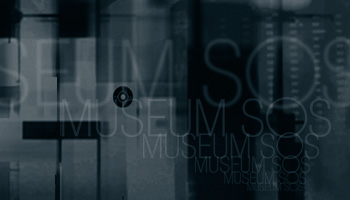|
After the Fire: Salvaging the Stores of the Department of Archaeology & Natural History, Australian National University, Canberra


Mary Clare Swete Kelly
Sarah Phear
Archaeology & Natural History,
Research School of Pacific and Asian Studies,
Australian National University
ABSTRACT
On 18th January 2003 a devastating bushfire swept through Canberra, the capital of Australia. In this fire over
500 private homes were destroyed along with many other commercial and public properties. The latter included a
large building in the suburb of Weston which belonged to the Australian National University which in addition to
several other functions, housed the collections of the Department of Archaeology and Natural History. The immediate
priorities of the university were to help staff and students directly affected by the fire and, to assess and begin
re-building the Mount Stromlo Astronomical Observatory that was also destroyed. Thus it was some time before personnel
were allowed onto the site in Weston to assess the damage to the collections and the stability of the building. When
this occurred a salvage team was set-up to 'excavate' the remains. This was a new process for all concerned and the
methods employed were often changed to adapt to the circumstances. This paper provides an overview of the final
procedures used in the salvage and the post-salvage data management. This reveals that many of the problems encountered
were a consequence of deficiencies in the management and methods of storage. These problems are not so immediate in the
carefully managed collections at museums. However, they are pertinent to the numerous stores scattered through natural
history, anthropology and archaeology research departments worldwide. Often, but not always, these suffer from a lack
of funds and/or curatorial staff which effects the implementation of procedures and strategies. This paper discusses
the response of the Department of Archaeology & Natural History to the destruction of their stores, and highlights
how this impacted on the methods employed for the salvage of archaeological, natural historical and ethnographic
collections. From this, recommendations are made to allow for better preparedness and response when future catastrophe
strikes, which will ultimately allow for better management of collections.
DOCUMENTS
 After the Fire: Salvaging the Stores of the Department of Archaeology & Natural History, Australian National University, Canberra After the Fire: Salvaging the Stores of the Department of Archaeology & Natural History, Australian National University, Canberra
Download PDF of entire lecture
 Weston Store Report Part 1 Weston Store Report Part 1
PDF Document
LINKS
Back to top
|




